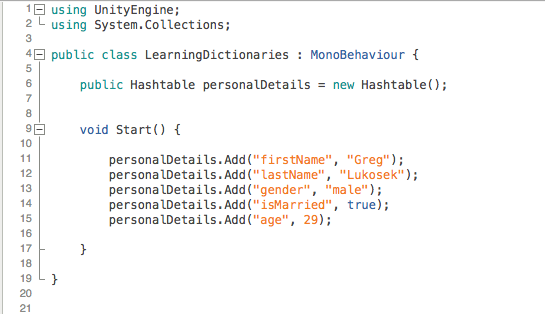Dictionaries
When we talk about collection data, we need to mention Dictionaries. A Dictionary is similar to a List. However, instead of accessing a certain element by index value, we use a string called key.
The Dictionary that you will probably be using the most often is called Hashtable. Feel free to dive into the C# documentation after reading this chapter to discover all the bits of this powerful class.
Here are a few key properties of Hashtable:
Hashtablecan be resized dynamically, likeList<T>andArrayListHashtablecan store multiple data types at the same type, likeArrayList- A public member
Hashtableisn't visible in the UnityInspectorpanel due to default inspector limitations
I want to make sure that you won't feel confused, so I will go straight to a simple example:

Accessing values
To access a specific key in the Hashtable, you must know the string key the value is stored under. Remember, the key is the first value in the brackets when adding an element to Hashtable. Ideally...



































































